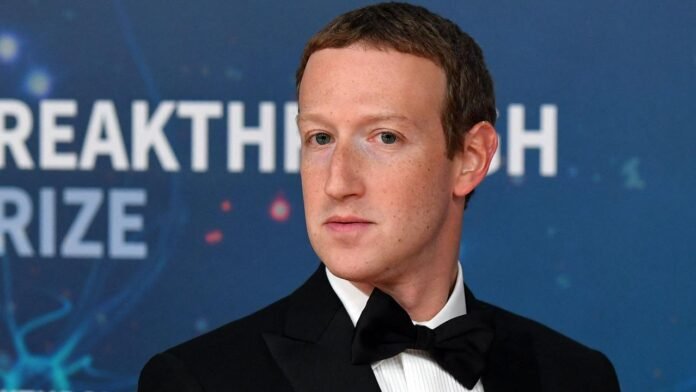In a surprising turn of events that has captured headlines around the world, Meta CEO Mark Zuckerberg found himself apologizing to parents during a recent public appearance. The tech mogul’s unexpected apology has sparked speculation and curiosity, prompting questions about the underlying reasons behind his contrition. As Zuckerberg’s apology reverberates across social media platforms and news outlets, it offers insight into broader issues surrounding technology, children’s mental health, and corporate responsibility.
The apology came during Zuckerberg’s keynote address at Meta’s annual Connect conference, where he unveiled the company’s vision for the metaverse and its plans to revolutionize digital communication and entertainment. Amidst the excitement and anticipation surrounding Meta’s ambitious projects, Zuckerberg took a moment to address parents directly, acknowledging concerns about the impact of social media on children’s well-being.
“Sorry for everything,” Zuckerberg said, addressing parents in a candid and unscripted moment that took many by surprise. The apology, while brief, struck a chord with audiences and reignited debates about the role of technology in shaping children’s lives and mental health. Zuckerberg’s acknowledgment of parental concerns reflects a growing recognition within the tech industry of the need to address the unintended consequences of digital platforms on young users.
The apology comes at a time when Meta, formerly known as Facebook, faces mounting scrutiny over its practices related to children’s online safety and mental health. In recent years, the company has come under fire for its algorithms that promote addictive content, its handling of user data, and its role in spreading misinformation and harmful content. These issues have raised concerns among parents, educators, and policymakers about the potential negative effects of social media on children’s development and well-being.
One of the primary concerns surrounding children’s use of social media is the impact on their mental health. Studies have linked excessive screen time and social media use to a range of negative outcomes, including anxiety, depression, and low self-esteem. The constant exposure to curated images and unrealistic standards on social media platforms can contribute to feelings of inadequacy and social comparison among young users, leading to adverse psychological effects.
Moreover, the pervasive nature of social media can expose children to online harassment, cyberbullying, and inappropriate content, further exacerbating mental health issues and creating safety concerns for parents. While platforms like Meta have implemented measures to address these issues, including age restrictions, parental controls, and content moderation policies, critics argue that more needs to be done to protect young users from harm.
Zuckerberg’s apology reflects a growing awareness within the tech industry of the need to prioritize children’s safety and well-being in digital spaces. As the parent company of Facebook, Instagram, and WhatsApp, Meta wields significant influence over the online experiences of billions of users worldwide, including children and adolescents. By publicly acknowledging parental concerns and expressing regret for the unintended consequences of social media, Zuckerberg signals a willingness to address these issues and work towards solutions that prioritize user safety and mental health.
In addition to Zuckerberg’s apology, Meta has announced several initiatives aimed at promoting children’s online safety and well-being. These include investments in research on the impact of social media on mental health, the development of new tools and features to empower parents and caregivers, and partnerships with experts and organizations working in the field of child advocacy and digital literacy. While these efforts represent positive steps towards addressing the challenges associated with children’s use of social media, critics argue that more concrete action is needed to ensure meaningful change.
Moving forward, Zuckerberg’s apology serves as a reminder of the ethical responsibilities that tech companies have towards their users, especially vulnerable populations such as children. As society grapples with the complexities of the digital age, it is essential for stakeholders to collaborate and engage in dialogue to develop solutions that prioritize the well-being of all users, regardless of age. By acknowledging parental concerns and committing to meaningful action, Meta has an opportunity to lead the way in promoting a safer and more responsible digital environment for children now and in the future.

